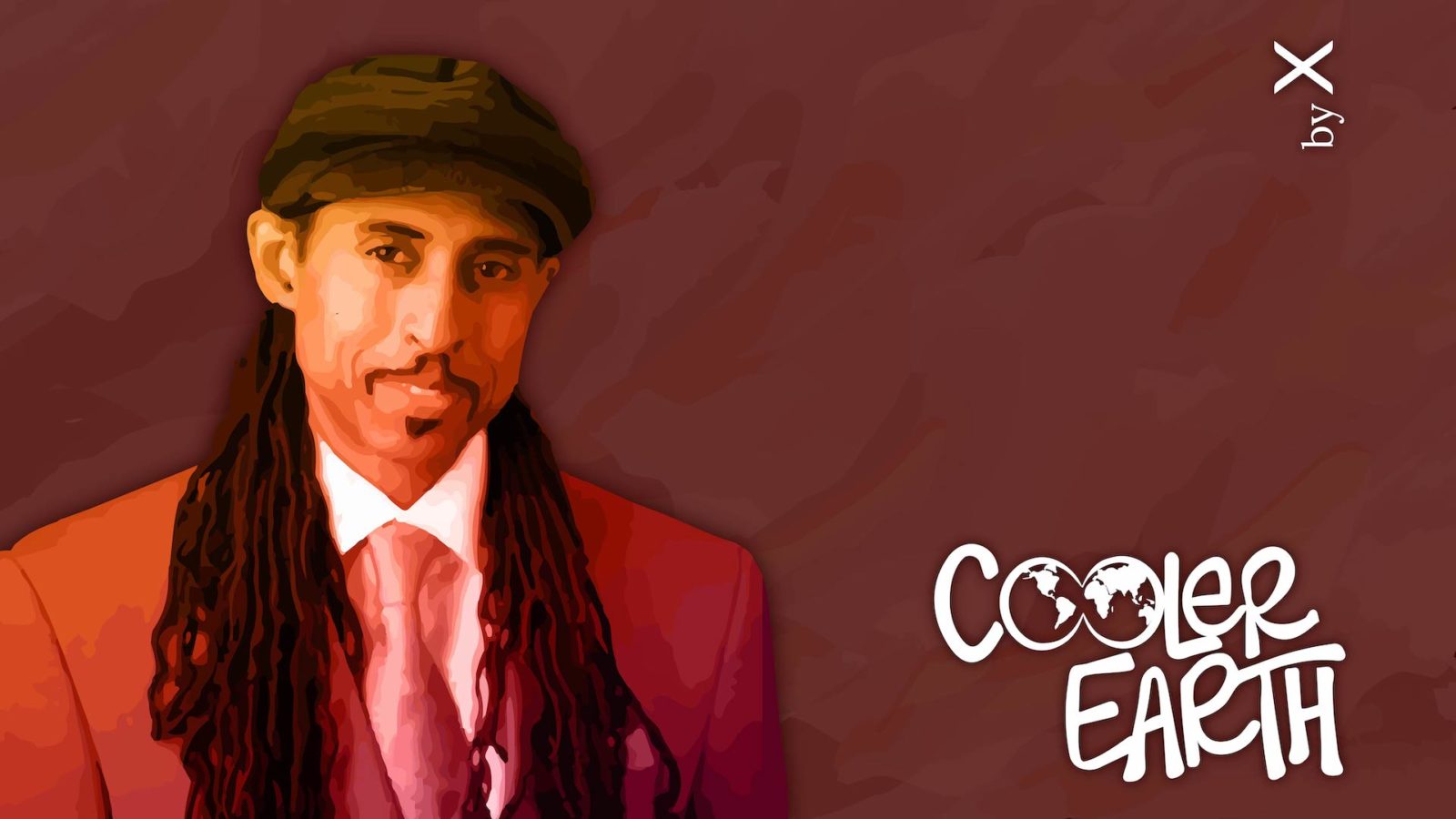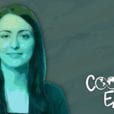Dr. Mustafa Santiago Ali, social and environmental justice advocate
Dr. Mustafa Santiago Ali is a long-time advocate for social and environmental justice. He is currently the Vice President of Environmental Justice, Climate, and Community Revitalization at the National Wildlife Federation, as well as the founder of Revitalization Strategies, an organization dedicated to addressing climate and economic issues in vulnerable communities. He also serves as a board member for Robert Wood Johnson Foundation, Union of Concerned Scientists, Roddenberry Foundation, and Climate Hawks Vote.
Before the National Wildlife Federation, Mustafa was the senior vice president for the Hip Hop Caucus, a national non-profit and non-partisan organization that connects the hip-hop community to the civic process to build power and create positive change. Prior to joining the Hip Hop Caucus, Mustafa worked for 24 years at the U.S. Environmental Protection Agency (EPA). He began working on social justice issues at the age of 16 and joined the EPA as a student, becoming a founding member of the EPA’s Office of Environmental Justice (OEJ).
In this episode of the podcast, we speak with Dr. Ali about the role faith has played in his work for social justice, the need for community-led solutions, and the inextricably linked relationship between social justice and environmental issues.
Below is a transcript of the webinar, edited and trimmed for clarity and brevity.

Maria Virginia Olano (MVO): Welcome to the podcast, Mustafa. It’s such an honor to have you today and I’m really grateful for you making the time and to meet you virtually.

Dr. Mustafa Santiago Ali (MSA): It’s an honor to be here with you as well.

MVO: How have you been through this year, the quarantine, and all of the changes we’ve all been living through?

MSA: It’s been a transformational year. I’m used to being on an airplane every couple of days, going all across the world, and being in one place for a long time is good, but also a lot to get used to. Unfortunately, we also lost some family members to the virus, so it brings home to how important it is to focus on these issues and the contributing factors that will make climate change an even bigger challenge than COVID-19 has been.

MVO: I’m so sorry to hear about your loss, I can’t imagine living through a personal loss as you also grieve for the collective loss that we’ve lived through.

MSA: I appreciate that.

MVO: Where are you based right now?

MSA: I’m in D.C. at the moment.

MVO: And you’re still able to work from home?

MSA: Yeah, working in lots of different places, but no airplanes.

MVO: All virtually — that’s one of the things that’s taken getting used to is staring at our screens for so long.
I thought we could start off with you sharing a little about your background, and specifically, what do you see as that inception moment in your long career for environmental and social justice?

MSA: I’ve been really blessed to be in the environmental justice, civil rights, social justice movements—I started working on social justice when I was a teenager and then the environmental justice movement later on. Many things have moved me along this journey, of course one of them is God. You are where God wants you to be, and you can either go easily or you can be tugged along. Luckily, I came out of a faith-based family and we’ve always been very mindful of whatever the calling is to make sure that you’re honoring them.
In seeing so many different things when I was young, I would ask my father why certain situations were happening. He would then, depending on how old I was, have certain conversations around systemic racism, disinvestment in certain communities, the marginalization of folks, and the dehumanization of folks in this country and around the planet. It gave me an awareness that there was work to be done in this space. Also, being surrounded by a number of civil rights leaders when I was younger gave me an appreciation that change can and will happen, but we have to be a part of that change, we have to get engaged. We can’t wait for it to be this natural process — it takes our energy, our innovation, and our pushing in the collective to make long standing systematic change a reality.

MVO: I wonder if you can expand a little more about how your faith has informed your work and your work in justice? This is something we have touched on in the podcast before so, if you’re comfortable, can you share how your faith and family values have informed the work that you continue to do today?
In season 3 of our podcast, we spoke to Boston-native Reverend Mariama White-Hammond on why addressing climate change is a spiritual matter. Listen to the episode. Listen here.

MSA: Faith is incredibly important because there’s a difference between religion and spirituality. Spirituality is that connection you have to a higher being, to God, and if you’re true to that, then there is responsibility in that relationship. Part of that responsibility is taking care of Mother Earth, but also responsibility for taking care of your brother and sisters in humanity. That’s just the way I was raised. My parents didn’t allow us to identify a problem without also talking about what the solutions were and the role that we had to play in those solutions. I’m very thankful to them for giving me a strong grounding in our responsibility here, sometimes we forget that. You definitely see that in some of the policy developments or choices that others will make where humanity, peoples health, is not valued at the same level as profit. For me, it means that there is a disconnect between those who say that their work, their actions, and their country, are founded on certain principles and is a reflection of what God is supposed to look like inside of you and your actions. We’re talking about climate change and environmental issues now, but we could go down a laundry list of social justice issues where people may say one thing — they may say something that they have a belief system that teaches them one thing—but their actions leads one to believe that there are some gaps or some inauthenticity in their statements and actions.

MVO: This year has been an embodiment of all that you’re speaking of. Bringing to light the mass amounts of suffering through the public health crisis and the murder of African American in this country that sparked a new mass mobilization in demands for racial justice; as well as the economic crisis ensured from the lockdowns and virus, and now election concerns and concerns over disenfranchisement. It’s been a whirlwind of a year.
I’m curious if you can tell us about how these past few months have made you think differently about your work and the current moment?

MSA: When it comes to everyday men and women, I would say that I have a renewed faith in humanity because I’ve seen so many brothers and sisters from all hues, all races, coming together to fight for justice. You see it in the protests happening at this moment, and that have been happening throughout this year, where folks are saying Black Lives Matter. But not just that they matter, but that we’re willing to put our bodies, our time on the line to make that a reality. That’s white brothers and sisters too, as well as African Americans, Latinx, Asian, LGTBQ, both wealthy and those who are evolving towards wealth. That in itself shows that there is a significant cultural shift happening, not just in America, but across the planet.
People are demanding justice, especially younger people. But they’re also joined by those who have been around a little bit longer and saying that the 21st century has to look different than the 18th, 19th, and 20th centuries. A lot of the actions are looking like it’s 1940 or 1950, and some instances 1840’s and 1850’s, so people are making change happen. They are realizing and understanding that they have power and they’re not going to just give it away — they’re going to hold themselves and others accountable. You see it not only in relationship to racial justice, you also see it in relationship to climate justice and climate change. We understand that what folks have been sharing is real, that we have to get engaged, and we have to push for change. We have to play a significant role because evidently the ways of the past were not being effective so we’re going to do new and different things to make sure that change happens.

MVO: One of the biggest things that we’ve seen through these past couple months of mass mobilization around the world is the understanding of the overlapping and intersectional nature of these issues. We’re no longer in one lane fighting for environmental justice or economic justice or racial justice, but those are in fact one in the same.
How do you personally think about the intersection of these issues and how public awareness of that intersection is evolving and changing right now?

MSA: There’s an awakening that’s happening. If you go back to the early days of the environmental justice movement, people were talking about housing justice and transportation justice; they were talking about economic justice and health justice; they were talking about food justice issues; and a number of other justice related issues that the intersectionality all brings together. When you go into a community — that community could be in India, Brazil, the U.S.— they’re multi-dimensional. There are so many different issues that folks are dealing with and if you’re only going to deal with one issue, then you’re going to leave gaps in the process. When you have gaps in the process, you leave people vulnerable, and we can no longer do that.
The sets of challenges that we have in front of us are great, but the sets of opportunities are even greater. That’s why we have to have a holistic strategy where multiple voices are a part of the process, that is of course all anchored in the community. When we focus and strengthen a community, we strengthen our cities and our towns, we strengthen our respect for countries, and folks are realizing now that we have to have a holistic strategy. It’s often said, we’re stronger together. That means whatever your area of expertise is, by partnering with others we can make real change happen, we can leverage, and we can hold folks accountable.

MVO: You mentioned this briefly before, but it’s about the realization that power already lies within people and communities. Something that you’re quite vocal about is the need for locally led and holistic solutions to a lot of these issues. Meaning that solutions can’t just parachute down from government or other organizations into communities telling them what those fixes are, but in fact solutions already live with people and communities.
Can you talk a little about why it’s so important to rethink the way decisions are made and how power is distributed?

MSA: It’s getting close now to about a thousand different communities that I’ve worked with, both in the U.S. and outside. The most successful, long-standing projects are those that are actually led by communities. Those communities are in the center of the work. There are authentic collaborative partnerships, of course, with lots of different folks who were a part of that because you need all of these different entities to be able to make that happen.
But, a lot of folks want to operate from this 20th century paradigm where cities or counties have to be the lead. In many instances, those cities and counties have played a negative role in what has happened inside of communities — not always, but way too often. When we change to a 21st century paradigm, where communities are the central point and framing out what they’re looking for, then others come together to help support that vision and set of opportunities. Then you’ve got something that can be quite transformative, there are numerous examples across the country.
In South Carolina, there’s the Regenesis project that took a $20 thousand environmental justice grant and has leveraged it to close to $300 million in changes, and the community was the central point in bringing other partners together. By last count there were 144 partners that were in that space. If you look like the Ivanhoe community in Kansas City, once again you have a community led organization that was able to create these authentic partnerships with the city and foundations to make real change happen. In many instances, this change is happening in areas where people said that investing in this location doesn’t make sense and isn’t going to yield positive results. People are flipping that old paradigm and saying ‘yes it does, and let us show you how it can happen.’
You see it in faith-based examples as well. In Jamaica Queens with Reverend Floyd Flake or Reverand Buster Soaries, or in Chicago with Bethel New Life—I could literally go down the list or go into other countries also. In Rio de Janeiro, with some of the communities who were there to create economic opportunities to be a part of clean and renewable types of energy opportunity, around recycling programs and so many different things. Across the planet, if we slowed down, if we honored the voice of communities and make sure that they have the resources and capacity to make change happen, we could do it at an exponential rate. When you have community examples of success, it changes the paradigm. But it also gives other communities across the planet an opportunity to say there’s someone who looks like me, who’s coming from a very similar socioeconomic, educational, or religious background, who’s been able to make real change happen. If they can do it, I can do it.
Regenesis is a certified Community Development Corporation, working to help address everything from environmental justice issues and pollution to housing conditions and healthcare access. Learn more about their efforts.

MVO: That’s so important, being able to see those things come to fruition and change actually happen. You mention the massive misconception that environmental justice initiatives or projects are “not a sound investment”—are there any other misconceptions that you see or encounter around environmental or social justice work that are important to dispel?

MSA: Without a doubt. One of them that is so glaring, and there was intentionality around the development of it, is saying that “these people, these communities, this is the type of situation that they want to be in.” It’s always interesting when you hear that old way of thinking, which unfortunately still tries to find fertile ground from time to time. I’ve never met anyone who—if they had the opportunity to live in a green, clean community—would choose to not live there, but would rather live next to polluting facilities, dilapidated housing, or numbers of types of examples we could give. But people will try to convince you that people are in the situation they’re in by their own doing, not the policy or the disinvestment that we continue to do in communities of color, lower wealth communities, and indigienous land.

MVO: That goes back so much to this myth of individuality, or the “pull yourself up by the bootstraps.” Especially in this country as I’ve seen it, that is just a massive fallacy when you don’t understand the history and context of intentional oppression and policy making that have left some at the margins by design. That’s something that, unfortunately, isn’t being discussed at all of the levels that it should.

MSA: You’re exactly right. It’s not part of our educational system in our country to give people the full history of how we got where we are. Most people don’t know anything about redlining, they don’t know anything about restrictive covenants, they don’t understand that in the banking, insurance, and other industries that there was intentionality in not providing services and opportunities to people of color, more specifically African Americans. How you pushed people into certain areas, and once you had them in certain areas, you disinvest so their property values never grew or went down. Once those property values went down, there were less economic opportunities that were willing to move into those spaces. That meant that negative types of industries would then fill that space because people didn’t have any other choice.
Then folks will say “why didn’t they move away?” If all the wealth in your home is stripped away, where do you go? You still have to deal with the mortgage or rent or whatever the situation might be, and this was built into our laws. Most folks are baffled that your own country would do these types of things to you, and that’s just one example. If we look at our housing laws that were on the books for a long time, they played a huge role and still do today in some of the situations certain communities are in. Our transportation laws as well, transportation laws had a strong racial component to them where they ran through certain communities, extracted wealth from certain communities, dropped wealth off in certain communities, and left pollution in our most vulnerable communities.
We can go down the laundry list of the things that are supposed to be a part of our social safety nets that fail many communities of color, and even today those remnants play out time and time again. We saw recently with our current administration around banking laws and making things more difficult for folks. If you look at the budgets that they proposed over the last three years, they’re stripping out so many necessary programs that would help people get that leg up, if you will. When you say “pull yourself up by your bootstraps,” the other one they use is “all boats rise”— not if those boats have holes in them. You can’t pull yourself up by your bootstraps if you don’t have boots.
We have an opportunity to do much better and educate people about the past so we don’t have to repeat it again.
Read more on how systemic and institutionalized racism impact the health of BIPOC people and communities. Read more.

MVO: Like you said, it’s fascinating seeing people go through that process of education and just the utter shock. If you’ve never been exposed to the history and the realities, or you yourself have never lived through the realities of marginalization and oppression in this country, it almost sounds surreal to realize that these are the ways intentionally policy making happened.
You say we have a massive opportunity for education and I agree. Where do you see those opportunities the most right now, specifically scalable opportunities for change, starting with education and hopefully all the way through to actual change?

MSA: In our educational systems, starting at very young ages all the way up through college, we need to build the right kind of curriculum to make sure that people have that basic information that’s so necessary. We live in an information age, so no one should ever say ‘well I didn’t know.’ All you have to do is pick you your phone or whatever your device is and type. Of course you’ve got to do your due diligence and ground the information in truth and get it from trusted sources, but it’s there at your fingertips. We’ve got to work with our agencies and our foundations, so on the state and federal level there is education that needs to happen there to make sure that policy is reflective of what is needed and what is demanded. From our foundations, there’s education opportunities there to make sure that resources flowing from those entities are coming from a well-versed place from lots of different communities. In our entertainment fields, there’s a need for education so that their platforms that they utilize and millions of people follow, that they have the ability to frame it out in a way that’s helpful and transformative.
On the education side, it is limitless what we can do to address the past situations—sometimes intentional, sometimes unintentional—in sharing wrong information and preparing the future with the information that’s going to be necessary to transform our communities, our economies, and our countries.

MVO: We’ve also seen a lot of this reckoning coming from environmental organizations. Black, Indigenous, and People of Color (BIPOC) have long been excluded from environmental policy and conservation — especially the older green organizations. We saw this most recently with the Sierra Club and its own racist history.
How are you thinking about the social moment and the need for these change-making organizations and platforms that are mission driven to have these internal reexaminations and changes themselves?
This July, the Sierra Club reckoned with its own historical ties to racism in relation to its founder, John Muir. The organization indicates that they plan to redesign their leadership structure and invest heavily in people of color on their staff, as well as allocate more funding for their environmental justice work. Read more.

MSA: Each of the organizations have to look at their history. Do they want to be 21st century organizations? If the answer is yes, then there’s work that has to happen. That work comes in lots of different ways, you start with their boards, their senior staff, and taking a look at who is a part of that. If they’re not looking like what America looks like and what America is moving towards, then they’ve got a lot of work to do.
You look at the priority setting and the missions, you need to see if it’s in alignment with what a 21st century organization is supposed to be about, and how your resources flow from that organization. And whose voices are helping to set the criteria for how that happens is another part of the sets of opportunities and responsibilities because your membership base will not grow if it’s not in alignment with the changes going on inside our country.
Most of those organizations get their resources from a couple of different places. One is foundations, and you kind of touched on the changes they need to continue to involve into. The other one is from membership bases, and if you expect your organization to not be antiquated and to grow then you have to address that. The other part is sometimes resources coming from the federal government or from corporations, so if you’re not in alignment you’re going to be in a lot of pain moving forward because people are going to hold you accountable.

MVO: Right. Particularly as it relates to your work with the National Wildlife Federation, how do you incorporate human equity and human justice into your conservation work — which we usually think of more as it relates to animals and wildlife?

MSA: There’s a couple of ways that’s going on. People always say “Mustafa, why did you go to the National Wildlife Federation (NWF)?” Well one, there was a letter that came out from many of my mentors and others over three decades ago talking about conservation and other big green organizations and the work they were not doing, and how they were being a detriment. I’ve always liked a challenge. At the NWF we have a full environmental justice (EJ) analysis that the federation is going through. That means that all the policies, programs, activities, and budgeting activities will run through an EJ analysis. Why is that important? Because that same pollution that has been making Black, Brown, and Indigienous communities sick and killing people is that same pollution that’s impacting national parks and impacting wildlife. There’s a synergistic effect that is going on, and if you’re not willing to understand that we need to be addressing all these issues at the same time, because pollution is pollution.
We’ve been very blessed that the board has been almost 100% supportive of that, only one person who wasn’t, but 97% of the board was and all senior staff. We’re blessed that we have this young president by the name Collin O’Mara who, when he kept trying to get me to come to NWF, kept having a conversation saying “Mustafa, I want to create a 21st century organization.” I said, “You sure about that? You know what that means?” And he said, “Yeah I know what that means.” There’s a lot of work that has to go into that. If you get NWF, as an example, to be able to do this properly — which has by no means been labeled a progressive organization, they’re pretty much a moderate organization—then all these others who say that they are progressive, who say they’re down for the cause, have no reason to not do similar types of things. To make sure their structure is being authentic and making sure that the actions coming out and partnerships, that are so critically important, are authentic. We will also have an EJ advisory committee that will help keep the whole NWF accountable and to make sure we have true collaborative partnerships in the work that’s going on.

MVO: Something that you’ve mentioned a couple times that is so crucial and important is the accountability part. When you say this takes work and is hard work, it’s because we’re way past the time that organizations can put out a statement, maybe even change their hiring process to bring in more diverse staff, without an understanding that it’s deeper than that. It is the kind of environment that we’re fostering for the people who come in and work for us, and how is that being translated into our programs and mission and how we do this work. It’s certainly a fascinating time to be experiencing and watching this happen, and hopefully continues to move into this direction.

MSA: I agree. We’ve got way too many organizations — although less, i want to give credit — where there’s a window dressing. It’s so easy to put out a statement and for there to be no meaning behind it, no resources behind it, where there’s no intentionality about real change happening. You’re doing it in the moment, not the investments and long-term structural change inside your organization, government, or corporation. People are putting themselves in a precarious situation because people will no longer allow that, people will call you out. I even think there will be economic ramifications for not doing the right thing.

MVO: That’s hopefully the movement we’re going towards. Actual accountability beyond the cultural wars that seem to be happening online and the call-out moment we’re living through. It relates back to the window dressing on a personal level as well, as we interact with each other mostly online.

MSA: That’s the challenge with just interacting with folks online. It moves fast and it’s hard to ground true information. The reality of the situation is that we got into a lot of the problems we got into because people would separate each other. Through that separation, it was easy to dehumanize folks because there was no interaction between groups. Younger people broke down the ‘isms’ — racism, sexism, ageism, all these “isms” that your parents or grandparents were sometimes anchored to. We’ve got real opportunities now, and so many younger people see each other for who they are, not the color of their skin or what socioeconomic background they come from. That’s what America was supposed to be, in theory, so let’s make that theory become real and that comes through true interactions with each other. And also honoring where we come from, what we bring to the table, our innovation and ingenuity, and all these various things that everyone has the ability to garner.

MVO: That’s a beautiful way to put it, inching closer to the promise of America and the promise of equality and opportunity that I think we’re being called back on so much these days.

MSA: Kennedy talked about that shining light on the hill when talking about America. We truly have the opportunity to live up to those ideals, the bill of rights, the constitution, and all those other things even though we know that at that time we know not everyone was considered a human being. But we knew the aspirational goal was that we could one day get to, and I think we’re now at that moment with all the changes I’m seeing happen. As we’ve said, the changes have not and will not be easy, but they are doable and they are happening. If I’m ever blessed to have children, I hope that by the time they are adults that America will look like how it’s supposed to look and lives up to what it says it is. Then you can be a leader on the world stage. It doesn’t matter what country we’re talking about, if it truly honors it’s people and its voices, then I think that’s one of the things that makes you a leader. Until you are willing to do that, then you are lacking in one of those aspects that is so critically important in leadership.

MVO: That’s such a critical point that I don’t necessarily see discussed as often as it should be in terms of America’s leadership in the world, and the prestigious nature of what should come along with that position.
We’ve talked a bit about the opportunities of this moment and the changes that are happening. I’m also curious, conversely, to hear what are some of the obstacles or barriers that you see to change and to justice?

MSA: Anytime you’re talking about change, there’s going to those, whether a small or large percentage, that are going to be resistant to that and do everything they can to stop that change. In many instances, it’s those who have been able to garner wealth and power through subjugation and other mechanisms to be able to not allow everyone to grow at the same rate. We’re in that moment now. Some people who have been blessed with wealth are going to use it in a number of ways to stop progress from happening. They will utilize that in the civic process, and stop people from being able to vote, to be able to fully engage in the process. You’re going to see it around marketing, around the utilization of the internet, and disinformation. You’ll see it in other ways as well I’m sure.

MVO: I think this year has shown us just how nefarious those things and interventions can be as we gear up for a presidential election and as we battle these issues that we’ve talked about. You start to see power pushing back on change quite insidiously.
I wanted to talk to you a little bit about the EPA. You were at the EPA for 24 years and left in 2017. I’m curious if you can share with us what that decision was like for you — and it might seem a little obvious — but what was the thing or things that made you make that choice to leave?

MSA: It was a tough choice on one hand, and on the other hand looking back it wasn’t as tough. I kind of grew up there. Even though a lot of the time I spent out in communities, I still spent significant time in D.C. and came to the EPA as a student and met a lot of great folks. I often say they all helped raise me — it was the environmental justice leaders, civil rights leaders, and those folks in the federal space helped me grow up. You saw over the years the good, the bad, and the ugly, and the evolution.
When I first started working on these issues, there were folks inside the agency that said ‘what these people are sharing in communities is not true, it’s not happening.’ Some people even said they were lying. Of course there was an evolution over time where that logic of thinking fell by the wayside and people came to get in alignment to do the right things that were necessary. Fast-forward to when I resigned, there was a lot of prayer and talking to mentors and family. Realizing that the way I was raised and knowing that the person who was coming in to be the next president — who had shared with us and been very clear about what he was going to do — and there’s a famous quote that says if someone shows you who they are, believe them. I looked at many of the things they were proposing and I would pray about it and say ‘God, if this happens I will leave.’ It happened and then I said ‘God, maybe you didn’t hear me right, I said if this happens then I’ll leave.’
A couple of things happened and I started to think about all of the people I had worked with over the years and the trust they put into me to be an advocate when necessary, how to stand up and push back in the places they may not be. I also remember the whispers in my ear from elders. Early on when they embraced me and brought me in, telling me to make sure I really learned these issues and listened to what’s going on in communities, and always hold yourself accountable. I remember those voices and I remember their faces, and I knew that I could not be a part of what these folks were saying that they were going to do and what they were starting to move forward on. I played back scenarios of how communities had worked so hard for decades and just getting the basic protections and these folks were talking about taking those away. All the programs that communities had worked with folks inside the federal government to give them a chance, and these folks were trying to eliminate them.
Under the current administration, the EPA has issued 100 rollbacks of environmental regulations. 68 of the 100 rollbacks have already been implemented, while 32 in progress. Read more.
I tried to be respectful when I resigned, and they told me over a million people read over my resignation letter. I tried to highlight for the new administration how critical these programs and resources were. I shared with them examples of how they were used to make real change happen. I had hoped it would inspire them to try and do the right thing. Every new administration has its own set of policies, I get that, I worked under both Republican and Democratic administrations. But these folks, what they were trying to move forward on and now over the past three years we’ve seen it played out and puts lives in danger on a regular basis. I knew that that wasn’t how I was raised and that I couldn’t be a part of it. I could have very easily taken another position in the agency. Someone had come to me after I left and said ‘Why didn’t you go over there and put your head down for the next four years, and if a new administration comes in then re-engage.’ I looked them in the eye and I was like ‘The folks I have tried to serve, they don’t have one day for you to take a step backwards, let alone four years.’
I hoped that I would bring a little tension and save some of the programs they were doing away with. We were blessed that the Office of Environmental Justice is not the national program office that it once was, but it still exists. The Office of Environmental Education and a number of the other programs that we were trying to put a spotlight on, there are still remnants of those programs. They weren’t able to get rid of the things they thought they could because a lot of people were coming together — not just Mustafa — I want to give credit in honor to all of those voices that were and continue to be a part of pushing back and holding people accountable. Now we’re on the precipice of a new day, and I’m looking forward to seeing real change happen.
Read Mustafa’s resignation letter to EPA administrator Scott Pruitt, in which he outlines his reasoning for leaving the agency after 24 years.

MVO: One thing that you just touched upon that is so important, and I think about quite often, is the real life impact of these decisions. For many, the rollbacks of EPA rules and the rollbacks that this administration has engaged on — I think we’re up to 100 now — are just headlines that come in and go away. But for the communities that are most affected, and like you said have fought for years and decades to get these protections, it’s a matter of life and death.
Today, we saw the news of the opening of sacred land in the Arctic refuge to oil and gas drilling. Those are things that, for many of us, will be very far away, as with many climate and environmental news. How would you speak of the real impact of these rollbacks and the chipping away of environmental protection that we have seen over the past four years, and how they translate to impact the lives and livelihoods of our fellow Americans and people around the world?
Read more about actions from the Trump administration to open the Arctic National Wildlife Refuge (ANWR) to oil and gas development. The ANWR is the largest remaining stretch of untouched wilderness in the U.S.

MSA: I believe in real talk. Some people won’t give you real talk because they’re worried about their next job or whatever it might be, but I believe in telling folks as it really is. I hold this administration accountable for many of the lives that have been lost to COVID-19, especially coming from our sacrifice zones in our most vulnerable communities. Anytime you are pushing more pollution into these communities, then you are literally creating or expanding folks who have chronic medical conditions. Everything from kidney and liver disease to lung diseases to cancers. We know the cancer clusters across our country and have a strong tie to the burning of fossil fuels and the toxic chemicals that people are being exposed to.
Please, for your listeners, know that these folks know the numbers. They know how many people are dying prematurely every year from lots of different toxic exposure. We got a hundred thousand each year dying from air pollution in our country. If you know that, and you’re rolling back all these air pollution laws, then that says something about your mentality and it says something about the policies you’re willing to move forward on. And it says some about the value you place or do not place on the lives of African Americans, Latinx brothers and sisters, Indigenous brothers and sisters, lower income communities, and Asian and Pacific Islander communities as well. Rolling back stuff that the industry doesn’t even want you to do, and they say please don’t. Recently with the methane rule, and we know that methane will warm up the planet faster than carbon does. Industry says ‘administration please don’t do this’, administration still goes forward on it. Clean car rule, same thing. Our water quality, all these rollbacks going on there, putting people in harm’s way.
They’re clear in many of the things they’re doing. They know the science, even though they’re science deniers, and they also make a calculation of profit and try for that small percentage of folks to continue to push profits, even in industries they know are not our future and they refuse to invest in our future. That’s why we have to get engaged. That’s why we have to get engaged in the civic process, and why we have to continue to speak out and hold people accountable.
We must use the knowledge and lessons learned from the coronavirus pandemic, not only to better prepare ourselves for the climate crisis, but to protect the communities who are the most exposed to overlapping risks. Read more.

MVO: I’m so grateful for your work, and this conversation has truly been such a gift so thank you so much for your time. This has been invaluable so thank you for being here and for sharing this. I look forward to sharing this conversation as wide as we can.

MSA: Thank you for everything you continue to do. Thank you for the CoolerEarth podcast. We can win on climate change issues, we can address this climate emergency we find ourselves in, but it’s going to take each and every one of us. Not just taking sacrifices, but thinking innovatively about the role we can play in golding our government and others accountable. We can win on these issues.

MVO: I’m so excited that lies ahead and all the people committed to these changes.

MSA: I’m right there with you.









